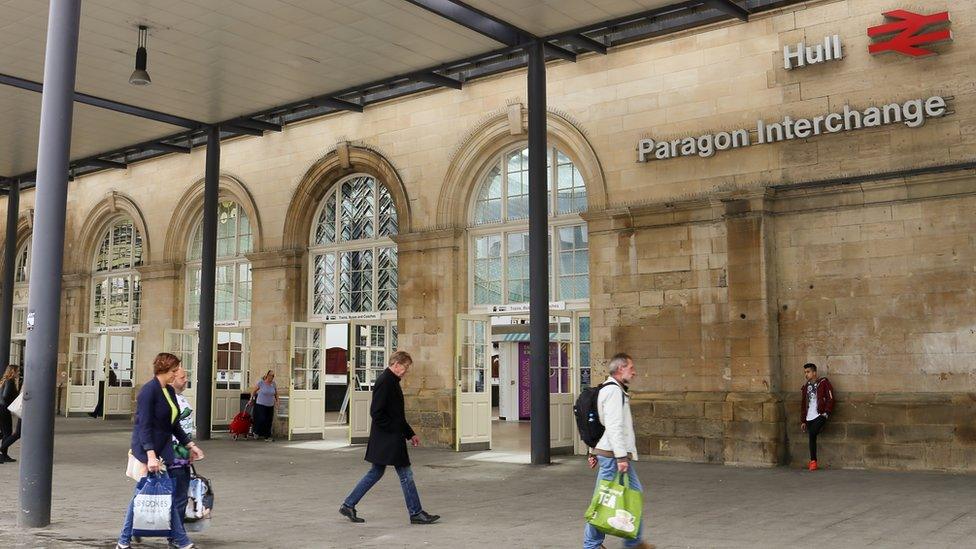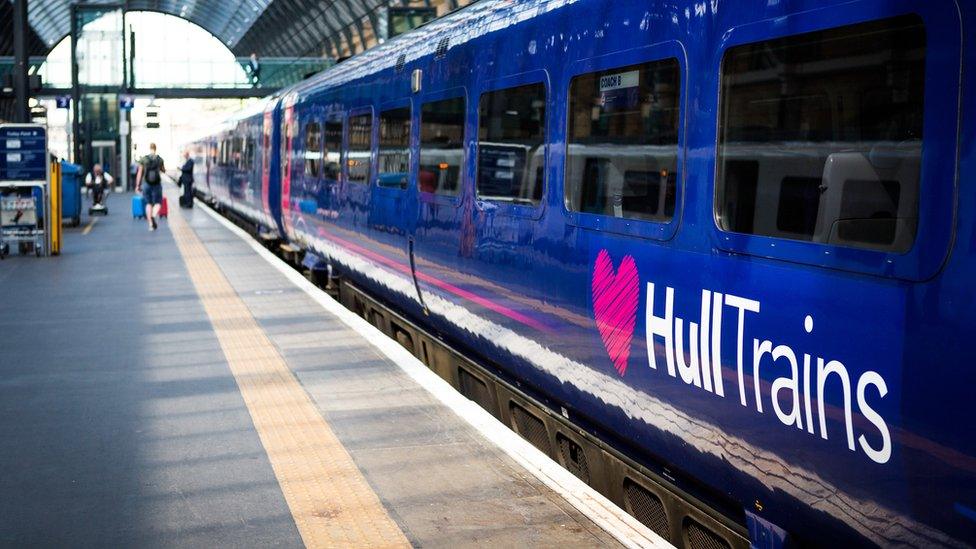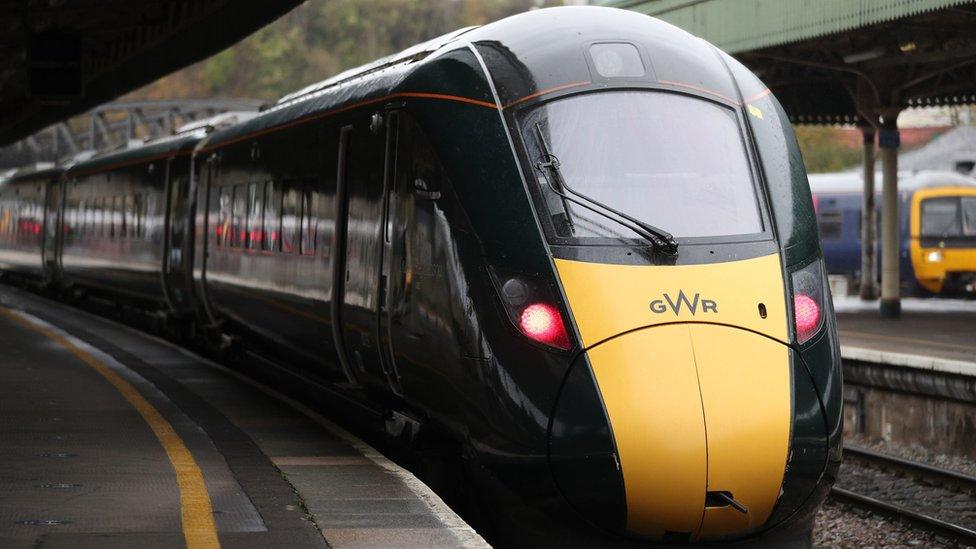Hull council says rail ticket office closures 'discriminatory'
- Published

Hull Paragon Interchange is one of the stations affected by the planned ticket office closures
The proposed closure of rail station ticket offices would "discriminate against" vulnerable passengers, Hull City Council has said.
The local authority's two political groups wrote jointly to the government and rail bosses to condemn plans to shut kiosks, including those at Hull Paragon station.
Nearly 1,000 ticket booths in England have been earmarked for closure.
The Rail Delivery Group said only 12% of tickets were now bought from desks.
But trade unions, MPs and councillors across the country have condemned the industry-wide proposals, which have been drawn up by rail companies to cut costs.
Mike Ross, the Liberal Democrat leader of Hull City Council, said councillors would "do all we can to prevent this proposal from coming into fruition".
He added ticket offices "provide a vital service," particularly for the oldest and most vulnerable passengers.
Daren Hale, leader of the council's Labour opposition group, said public transport provided "a lifeline" for some vulnerable people and the loss of ticket offices would make it harder "and in some cases impossible" for them to travel.
The two leaders have written to Transport Secretary Mark Harper and the managing director of TransPennine Express, which manages Hull Paragon station, to object to the plans "in the strongest possible terms".
Ticket offices at stations in Beverley, Bridlington, Brough, Cottingham, Driffield and Goole are also proposed to close.

Councillors have warned some passengers may find it "impossible" to board trains if ticket kiosks shut.
A blind Hull councillor said last month the proposals felt "like a personal attack," while the Equality and Human Rights Commission has raised concerns about the impact on disabled and elderly passengers.
TransPennine Express said only 8% of tickets to and from its stations were bought from ticket offices as customers move to buying online and from self-service machines.
It said shutting ticket kiosks would allow staff to assist more passengers in "multi-skilled" customer service roles.
A public consultation on the plans is open until 1 September.
Industry body the Rail Delivery Group, which is overseeing the plans, said equality impact assessments had been carried out at every station and companies would "continue to engage with accessibility and safety groups".
The transport secretary had put pressure on train companies to cut costs after they received government support through the Covid pandemic pandemic.
The Department for Transport has said the future of ticket offices is "a matter for the industry" but argued the rail industry needed reforms to become "fit for purpose".

Follow BBC East Yorkshire and Lincolnshire on Facebook, external, Twitter, external, and Instagram, external. Send your story ideas to yorkslincs.news@bbc.co.uk, external.
Related topics
- Published25 July 2023

- Published13 July 2023
